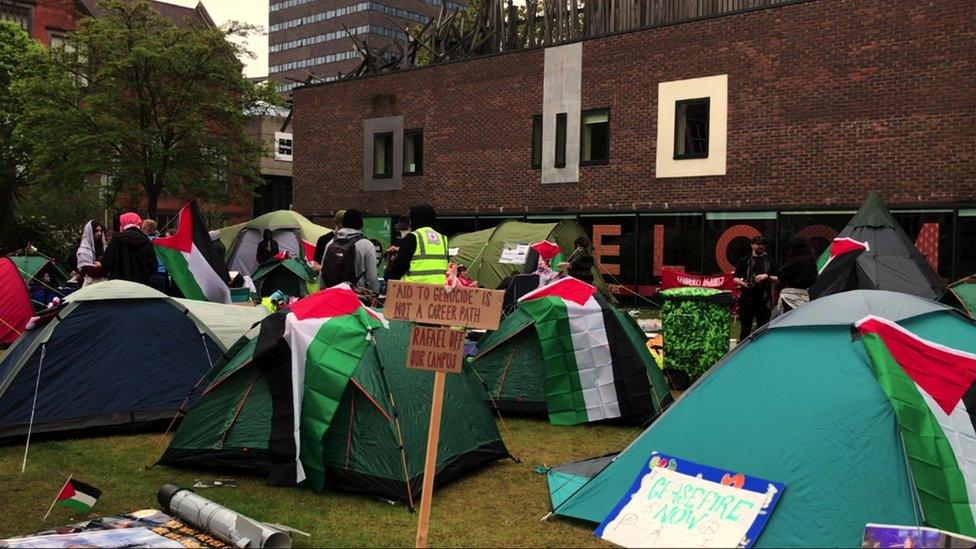UCL wins court order on Gaza protest camps
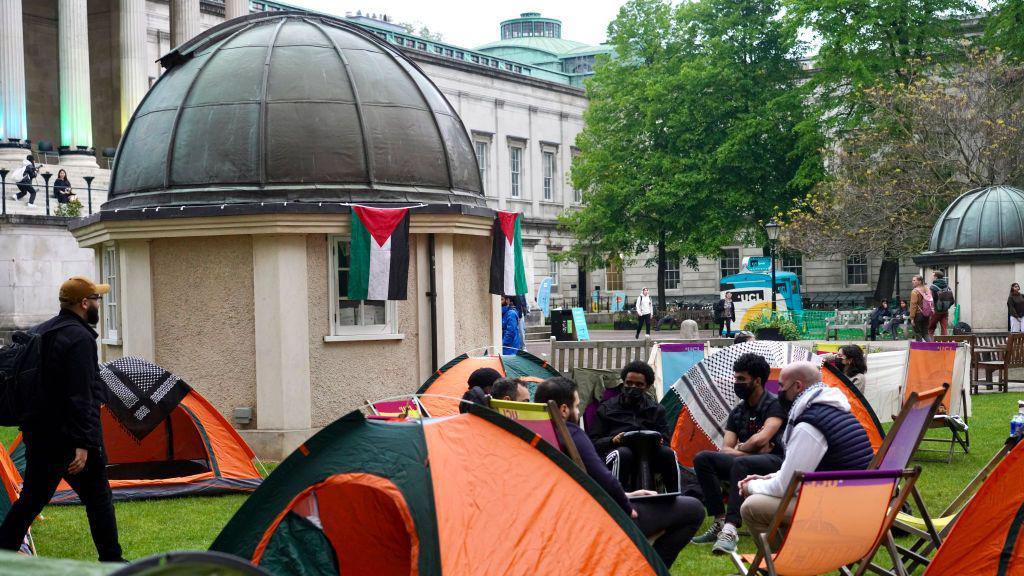
The pro-Gaza protest began on 2 May with 12 tents
- Published
University College London (UCL) has won a court order to regain control part of its campus which has been occupied by pro-Gaza protesters since May.
The university took legal action against "persons unknown" over the "unauthorised occupational encampment" on its main site on Gower Street in central London, claiming activists were trespassing on private land.
The High Court granted a summary possession order, which decided the case in the university's favour without a full trial.
In a social media post in response to the court’s decision, protest group UCL Stand for Justice said it was "disheartening" that the university had chosen to "smear" its actions rather than address its concerns "through open and honest dialogue".
Protesters have alleged some universities are "complicit" in the loss of life in Palestine and want them to divest from Israel in response to its military operation in the Gaza Strip.
'Disruption to university activites'
UCL told the High Court that it had spent more than £200,000 on security fees for managing the unauthorised protest camp.
The university also argued that the encampment affected its ability to deliver core educational functions.
Katharine Holland KC, for UCL, said in written arguments that the aim was to "protect the claimant's right to possession of its own land and enable it to carry on the activities of the university and prevent disruption to other members of the university's community”.
The protest began on 2 May with 12 tents, growing to an encampment that "at its peak" involved about 50 people and some 52 tents, Ms Holland said.
The university had identified "escalating incidents and disruption" allegedly associated with the encampment, with there being "obvious concern" about its ability to use its main quad for events such as its student "welcome week" in September, the court was told.
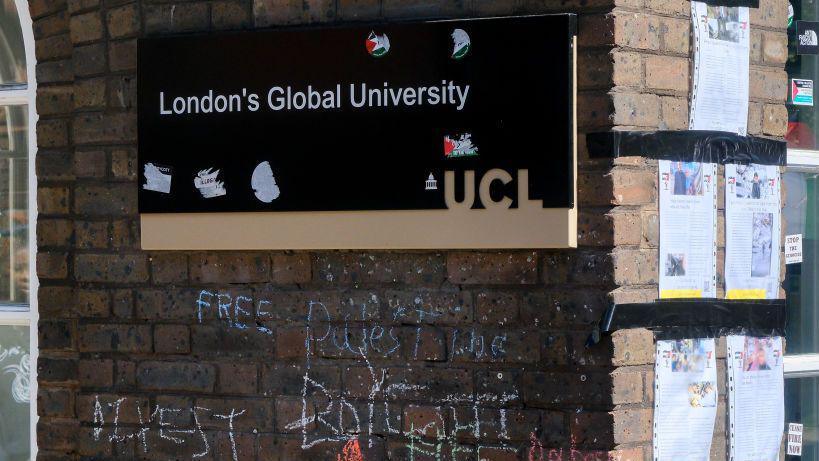
The judge granted UCL a summary possession order
UCL sought "an immediate order for possession" covering its main campus stretching from Gower Street to Gordon Street and Gordon Square and from Gower Place to Torrington Place.
Judge Francesca Kaye said the university's decision-making process was "appropriate" and that an order covering its whole campus was "compatible" with protesters' human rights, and UCL has a right to regain possession of its land.
UCL Stand for Justice said on Instagram that it remained "open to negotiating in a manner that respects the rights and voices of all students" and urged the university to "commit to engaging with us in good faith".
A UCL spokesperson said: “We have a long and proud tradition of upholding the right to freedom of speech and protest, but we must now gain full access to our campus to ensure activities that are so important to the life of the university can go ahead.
"In particular, we are looking forward welcoming our new students to UCL in a way that equips them to make the very best of their time here.”
Listen to the best of BBC Radio London on Sounds and follow BBC London on Facebook, external, X, external and Instagram, external. Send your story ideas to hello.bbclondon@bbc.co.uk, external
Related topics
- Published10 July 2024
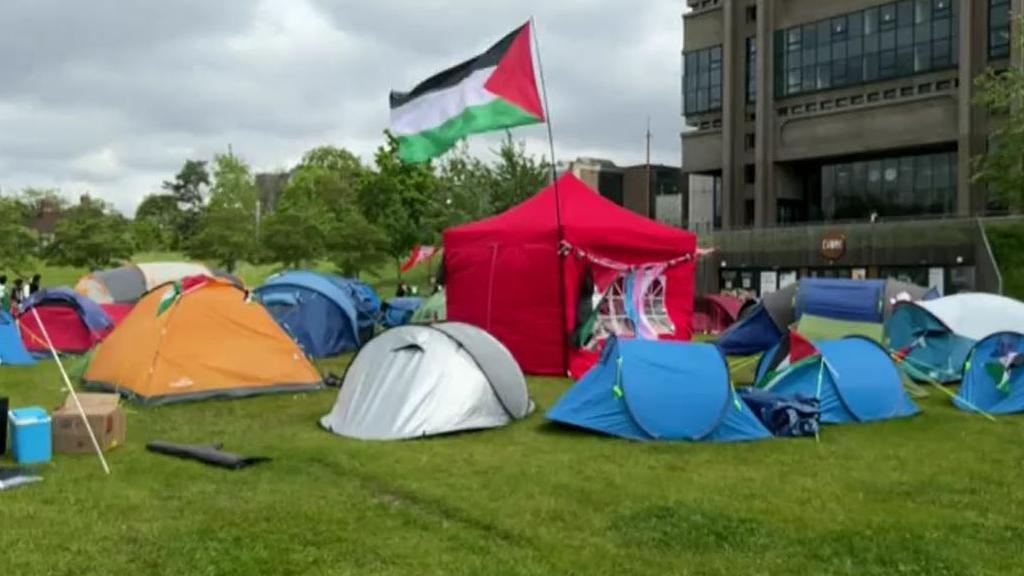
- Published9 May 2024
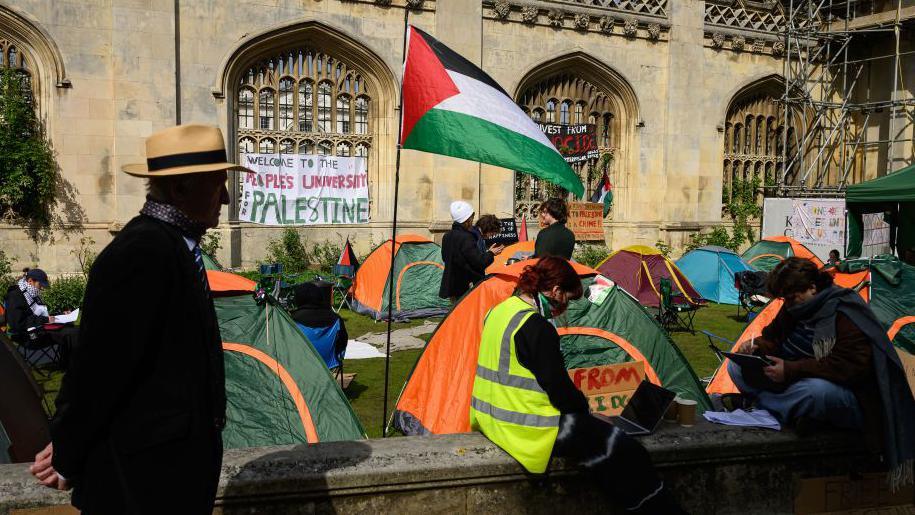
- Published1 May 2024
